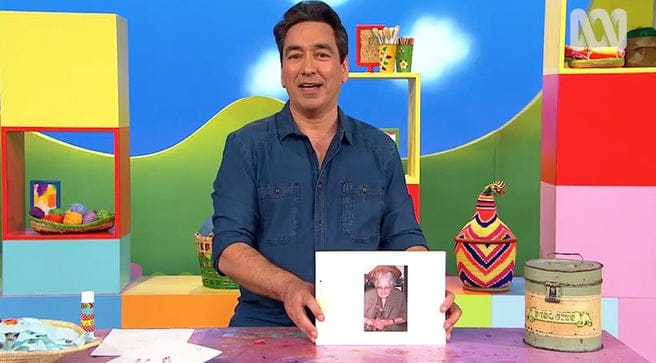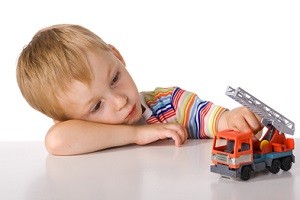Talking to our kids about death can be tricky. This and the ‘where do babies come from’ conversations are the ones we try and steer clear from for different reasons. It’s easier to avoid them, but wrapping our kids in cotton wool doesn’t prepare them for loss, and it hurts them more than just having the conversation.
Playschool recently aired a special stand-alone episode called Beginnings and Endings, where presenters Alex Papps and Emma Palmer pretend play with Little Ted, whose pet fish Swish has died.
This dramatic pretend play helps children understand what death is and how to deal with grief.
Using the correct language is very important when explaining these issues to young children so they understand that death is permanent.
The Play School team consulted with Dr Elizabeth Mann, clinical director of the National Centre for Childhood Grief. ” I totally understand why we want to protect our children [from death],” says Dr Mann, who sees kids aged from three to 18 who’ve had someone close to them die.”
Saying they’ve ‘passed away’ or ‘gone to a better place’ or even ‘they’re watching over us’ can be confusing as children take these things literally.
However even then, this concept of something or someone being gone forever can be overwhelming and they may take weeks or even months to really grasp the concept. Expect questions to pop up randomly some time after talking about it.
Another important factor when talking to children experiencing the death of someone close to them is how to express their grief.
In Beginnings and Endings, Little Ted’s friends are there to support him, not cheer him up. Something very important to anyone grieving. It’s not about pushing aside your feelings and being happy again.
Little Ted’s friends allow him to feel sad, which is something to express to children, it’s okay to be sad and cry. These emotions should not be taboo.
Alex Papps also uses his own experience of the death of his grandmother to share with children how they can find a way to celebrate someone’s life and also cope with loss and grief.
He makes a scrapbook of some photos of his grandmother and talks about some memories he has of her. This is quite an important thing to show children that although that person is gone, it doesn’t mean that you can’t look back and remember happy things that happened with that person.
Dr Mann suggests that after having a talk about death and grief parents should do something fun and energetic to help lift their mood.
Tips Dr Mann has given the ABC about talking to kids about death are:
- Keep your language clear, don’t use euphemisms like “they passed away”
- Talk about death before it happens in your family
- Let your children lead the conversations, ask them what they think has happened, rather than bombarding them with information
- Show your children it’s OK to be sad
- Kids can’t sit with “big feelings” for too long, so plan a fun activity for after your talk
- Keep memories alive — make a scrapbook about someone who died, visit their favourite place or cook a recipe they loved
Dealing with your own grief while explaining death to your children can be quite a challenge with this read this personal experience about how this mum got through this difficult time.















